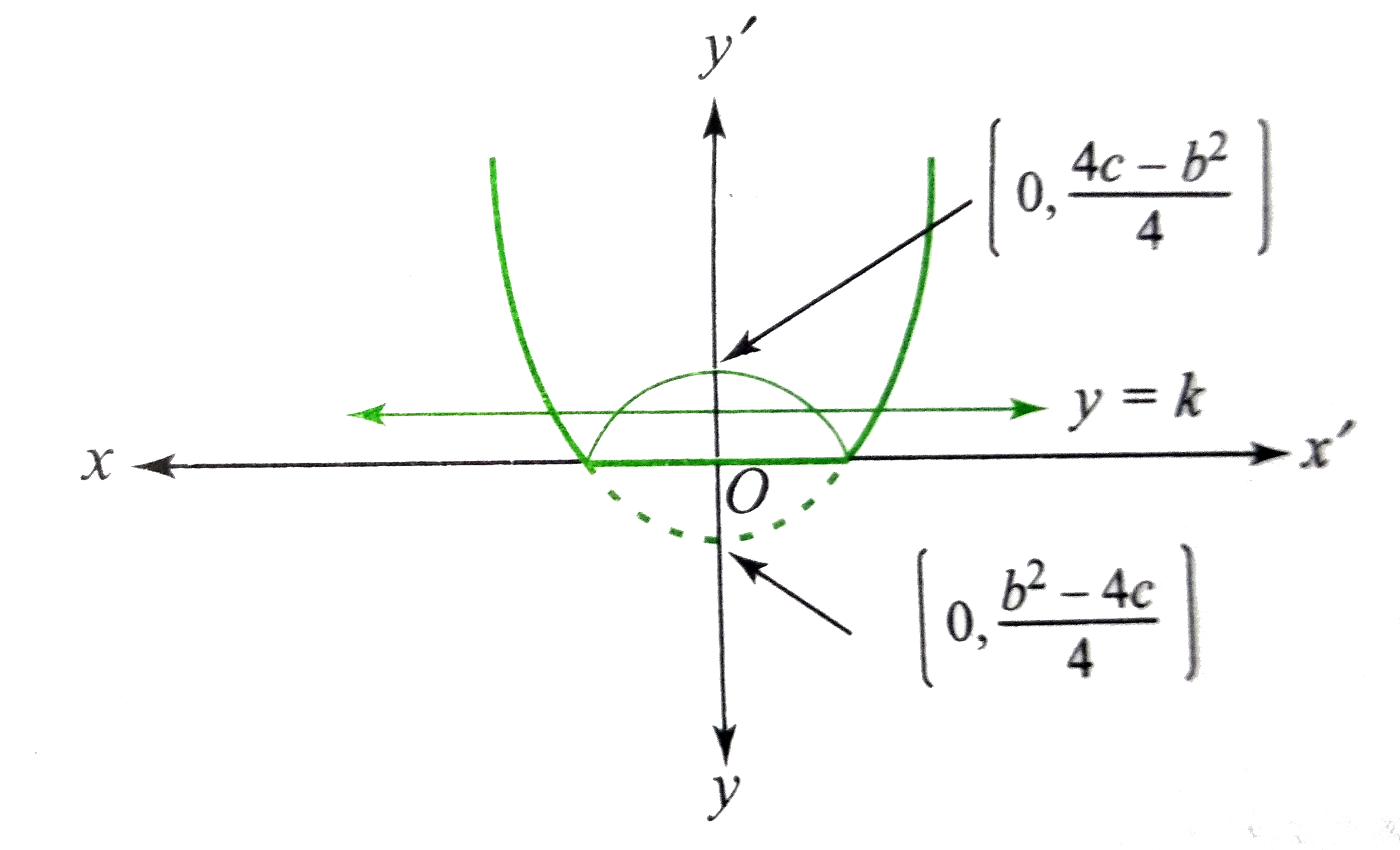If the equation ∣∣x2+bx+c∣∣=k has four real roots, then
b2−4c>0and−<k<4c−b24
b2−4c<0and−<k<4c−b24
b2−4c>0and−k>4c−b24
none of these
The correct Answer is:1

For the equation to have four real roots, the line y = k must
intersect y=∣∣x2=bx+c∣∣ at four point.
∴D>0andk∈(0,−D4)
Topper's Solved these Questions
- THEORY OF EQUATIONSBook:CENGAGEChapter:THEORY OF EQUATIONSExercise:Exercise (Multiple)
Explore 38 Videos
- THEORY OF EQUATIONSBook:CENGAGEChapter:THEORY OF EQUATIONSExercise:Exercise (Comprehension)
Explore 37 Videos
- THEORY OF EQUATIONSBook:CENGAGEChapter:THEORY OF EQUATIONSExercise:Exercise 2.13
Explore 9 Videos
- STRAIGHT LINESBook:CENGAGEChapter:STRAIGHT LINESExercise:JEE Advanced Previous Year
Explore 4 Videos
- THREE DIMENSIONAL GEOMETRYBook:CENGAGEChapter:THREE DIMENSIONAL GEOMETRYExercise:Question Bank
Explore 20 Videos
Similar Questions
If the equation ax2+bx+c=x has no real roots, then the equation a(ax2+bx+c)2+b(ax2+bx+c)+c=x will have a. four real roots b. no real root c. at least two least roots d. none of these
View SolutionIf the equation f(x)=ax2+bx+c=0 has no real root, then (a+b+c)c is (A) =0 (B) >0 (C) <0 (D) not real
View Solution
Knowledge Check
Let f(X) be real valued continous funcion on R defined as f(X) =x2e−|x|
The values of k for which the equation x2e−|x|=k has four real roots areA0<k<eB0<k<8e2C0<k<4e2Dnone of theseIf a, b ∈ {1, 2, 3} and the equation ax2+bx+1=0 has real roots, then
Aa>bBa≤bCnumber of possible ordered pairs of (a, b) are 3Da<bIf the equation ax2+2bx−3c=0 has no real roots and 3c4<a+b, then
Ac<0Bc>0Cc≥0Dc=0
If c>0 and the equation 3ax2+4bx+c=0 has no real root, then
View SolutionThe equation ||x−a|−b|=c has four distinct real roots, then
View SolutionIf the equation ax2+bx+c=0 has non-real roots, prove that 1+ca+ba>0
View Solutiona,b,c∈R,a≠0 and the quadratic equationax2+bx+c=0 has no real roots, then
View Solutiona,b,c,∈R,a≠0 and the quadratic equation ax2+bx+c=0 has no real roots, then which one of the following is not true?
View Solution